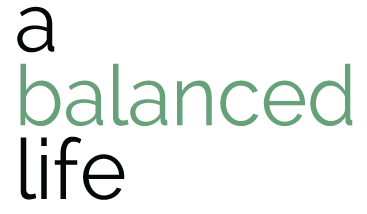how and when did mental health become mental meh?
Dear fellow human being, seeking a meaningful, rich, wholehearted life,
When and how did mental health become mental meh?
“What is the problem from your viewpoint?” “How does the problem affect your life and ability to function?” “Describe the symptoms you have noticed as a result of your problem.” “What have you already tried to fix the problem?” What didn’t work for you when trying to fix this problem?”
Psychological change hinges on the art of an evocative, well-timed, question.
In traditional psychology the questions traditionally center on what’s WRONG and how to diagnose, then reduce or eliminate the PROBLEM. Since the problem typically involves a painful emotional state, our feelings become categorized as either good or bad. Strength-based and client-centered buzzwords end, along with therapy, as soon as the problem is in remission or don’t meet DSM criteria. The optimum outcome is symptom reduction. Is it any wonder there is stigma associated with this problem-centered, feeling phobic, “fix what’s broken and then you’ll be ok like the rest of us” way of practicing psychology? Paradoxically, the single most stated therapeutic goal of people coming to see me for help is “I just want to be happy.”
“Who has been positively influenced and shaped your beliefs and worldview?” “What are you grateful for today?” “Describe a time in your life when you felt at your best. What was happening, who were you with? What worked?” “How would you like to be remembered?” “What needs to happen for this to become a reality?”
Positive Psychology poses questions and engages in dialogue about optimum health, life balance, how we define success, the nature of values. The well-timed evocative questions focus on what works. What are your strengths and when have they served you well? How often do you give yourself permission to be human and embrace the full range of emotions? When you feel ok, how can you feel, do and be your best? Positive Psychology teaches you the researched-based behavioral skills that guide you toward happiness and well being. As far as I can tell, there is no shame or stigma associated with people who want to create well being and become happier. In Positive Psychology, the best outcome is to flourish.
When I talk to those struggling with “problems” about Positive Psychology, they most often lean in, engage, smile, at times I notice a wistful look of longing. They are curious. They want to hear more.
When I bring up the topic of Positive Psychology with fellow practitioners, I often get a subtle eye-roll. They lean away and visibly scoff. Some have stated that they see Positive Psychology as fluff, the stuff of happy, happy, joy, joy, under-trained, over-paid “Life Coaches.” (Disclaimer….NOT my thoughts or words or even quotation marksJ)
Do the two ways of practicing psychology need to be mutually exclusive? I believe the overarching tenants of Positive Psychology could and SHOULD be integrated into the time we spend with people. I started moving in this direction well over 10 years ago as indicated by the therapies I choose to pursue in depth as a means to develop and guide my practice.
Marsha Linehan proposes the concept of Wise Mind, One mindfully in the moment, Radical Acceptance, Opposite-to-emotion action. The goal of DBT is to create a life worth living. (I don’t see this as the meh life) Steven Hayes, Acceptance Commitment Therapy (ACT) focuses on mindfully acknowledging our thoughts and feelings without becoming our thoughts and feelings. The goal of ACT is to continue to take action/behave in accordance with your values, despite what the monsters on the bus (our thoughts) are enticing us to do. Gottman Couples Therapy views healthy relationships growing through a deep, meaningful understanding and respect of your partner. Within most conflicts is a longing or dream. Conflicts are often perpetual problems resulting from ones subjective view of reality. Often the goal is understanding and acceptance rather than resolution or change.
I have begun to shift my initial intake assessment to highlight internal strengths drawn upon in challenging times. In sessions we dialogue the art of being beautifully flawed humans and the impact denial of our humanness has on our moods. I encourage people to embrace the full spectrum of emotions. I educate on an awareness of the distinction between feelings, facts and actions, I will share my personal failures and disappointments as a means of understanding that “only psychopaths and the dead don’t experience pain” (one of my favorite Tal Ben-Shahar quotes EVER;-). We discuss the meaning that can only be discovered through suffering. I quickly integrate gratitude, acts of loving kindness and mindfulness as everyday behavioral skills for improving the overall quality of life.
It makes me smile to consider the healthy impact this perspective shift could have on the field of traditional psychology and those seeking guidance. Sessions become collaborative and humanizing. The us/them mentality fades into the background of two souls connecting over what it takes to create and live a meaningful life. I hold out hope that the field of psychology, as a whole, will eventually move away from a pathology based, stigma enhancing, and pill-popping model. In Laurie-land, mental health is about becoming much more than mental meh.

